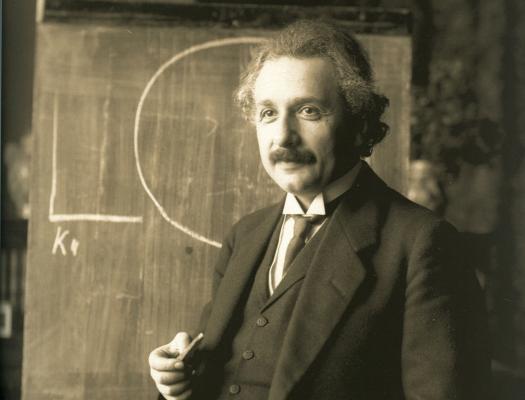Last week thousands of Albert Einstein documents, known as the Dead Sea Scrolls of physics, were released via Digital Einstein, a partnership between Princeton University, the Einstein Papers Project at Cal Tech, and the Albert Einstein Archives at the Hebrew University of Jerusalem.
Since then, readers have been able to sift through Einstein’s documents — including a letter written to Marie Curie telling her, in layman’s terms, to ignore the trolls, along with Einstein’s high school record, personal letters and notes on his theory of relativity. (The letter to Curie is below.)
[embedtweet id=”540899313899933698″]
A document titled “A Message to My Adopted Country” also surfaced yesterday on Raw Story. This piece of writing is available in the book “Einstein on Politics: His Private Thoughts and Public Stands on Nationalism, Zionism, War, Peace, and the Bomb,” edited by David E. Rowe & Robert Schulmann. (However, I have not yet seen a digital copy in the archives.)
The document, written in 1946, is a powerful one. In this piece of writing Einstein shares his observations on race in America.
“There is, however, a somber point in the social outlook of Americans,” Einstein wrote. “Their sense of equality and human dignity is mainly limited to men of white skins.”
More of Einstein’s incisive observations can be read at Raw Story, and via a document from Stanford.
“Your ancestors dragged these black people from their homes by force; and in the white man’s quest for wealth and an easy life they have been ruthlessly suppressed and exploited, degraded into slavery,” Einstein wrote later in the document. “The modern prejudice against Negroes is the result of the desire to maintain this unworthy condition.”
“I do not believe there is a way in which this deeply entrenched evil can be quickly healed,” Albert Einstein wrote further on in the piece. “But until this goal is reached there is no greater satisfaction for a just and well-meaning person than the knowledge that he has devoted his best energies to the service of the good cause.”

